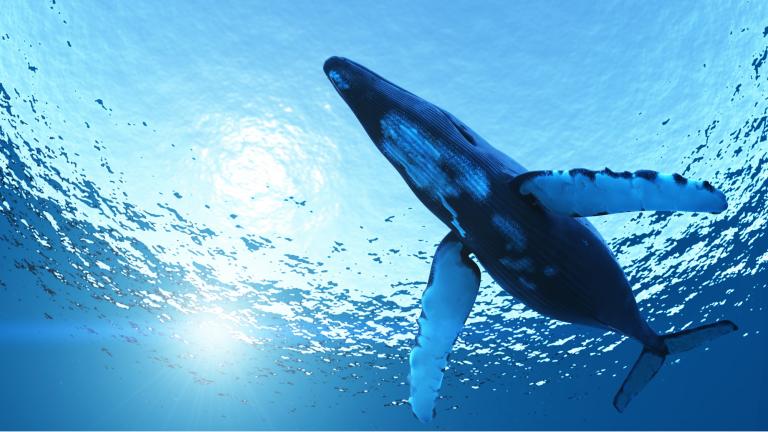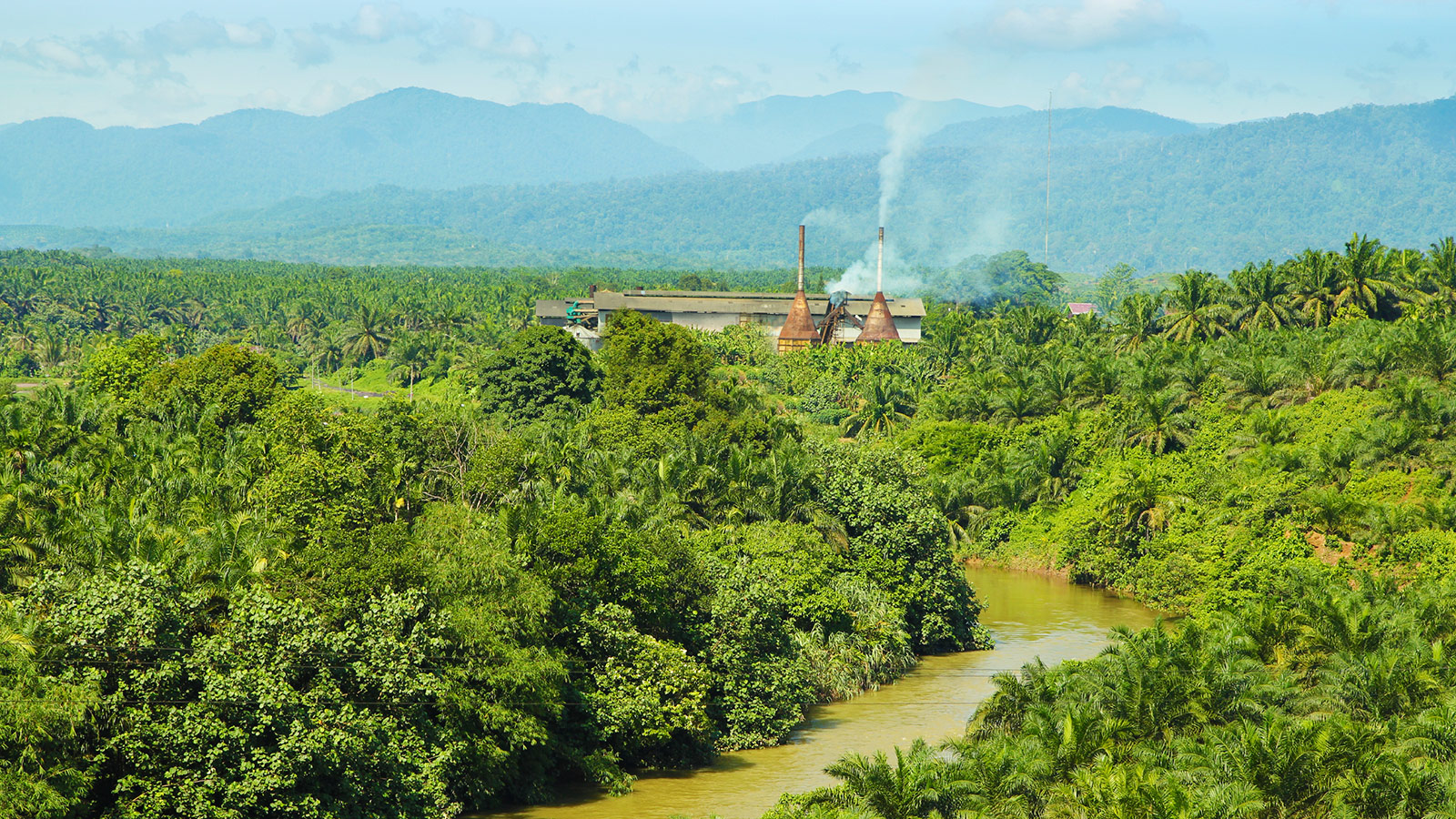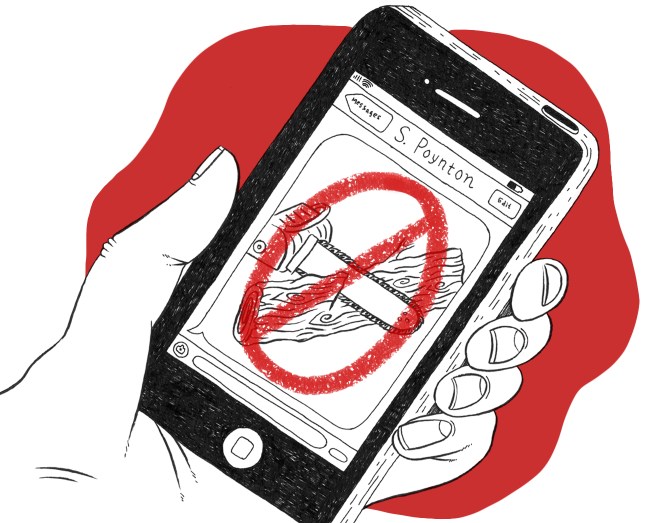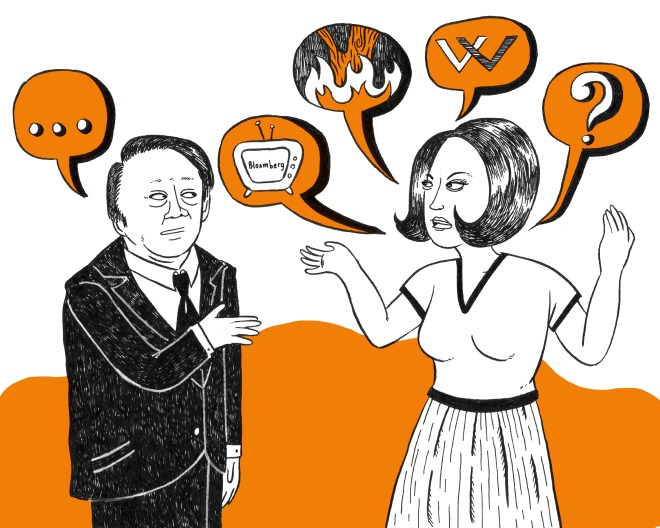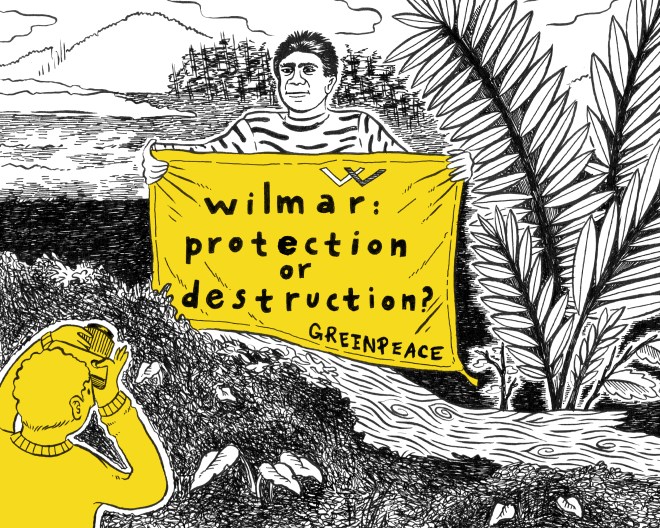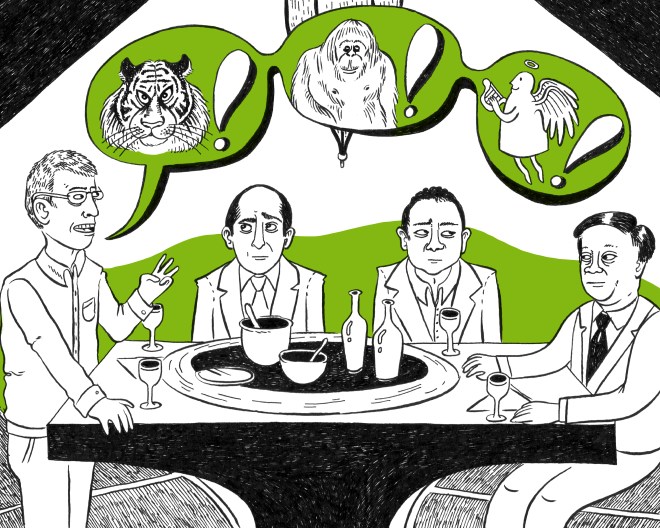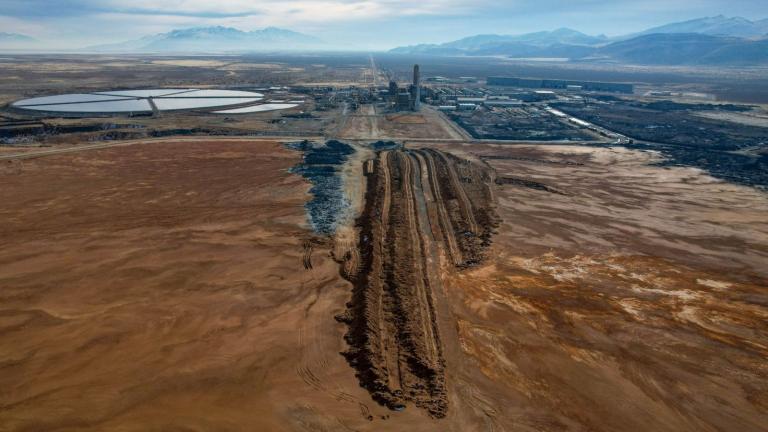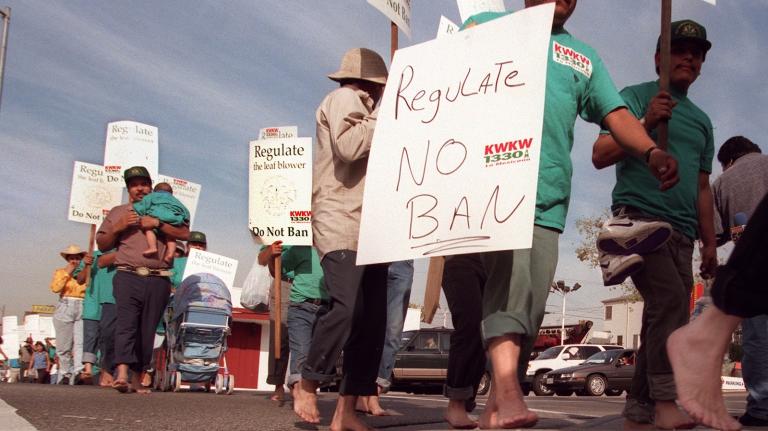Glenn Hurowitz sat down for his Thanksgiving meal discouraged. He’d spent 2013 flying halfway around the world to cultivate a fragile relationship with Kuok Khoon Hong, CEO of the world’s largest palm oil corporation, Wilmar. Kuok was the linchpin, Hurowitz believed — a single person who might turn the entire palm oil industry around. Wilmar buys palm oil from 80 percent of the world’s suppliers. If Kuok committed to buying only from farmers who promised not to cut down the rainforest, it would set off a chain reaction that might save hundreds of species from extinction and squelch one of the world’s biggest sources of carbon emissions. But after months of progress, the signals he’d been getting from Kuok were not encouraging.
Hurowitz emailed his co-workers at Forest Heroes, the nonprofit he’d founded, telling them to prepare for a protracted struggle. “I said, ‘Suit up, we’re going to war’,” Hurowitz told me. Then he got into bed, deflated. As he was settling in, his iPhone chimed a new text message. It was Scott Poynton, head of The Forest Trust, who had been working closely with Hurowitz and Kuok. Kuok was ready to make a commitment, the text said.
Hurowitz rushed to book a flight to Singapore. That Monday, he was on the airplane.
It takes 24 hours to fly from Washington, D.C., to Singapore. By the time Hurowitz got off the plane, he saw he had another email from Kuok. Perhaps the time was not right, the palm oil exec was saying now; he wasn’t going to make any commitments unless the other palm oil companies did the same.
Hurowitz knew that wasn’t going to happen. Negotiations had been proceeding for years and had consistently failed to stop the chainsaws. He fired back an email with a picture of protesters holding banners outside the Kellogg’s headquarters in Battle Creek, Mich. (Kellogg’s bought oil from Wilmar.)
“Every one of your customers’ headquarters is going to look like this,” Hurowitz remembers writing. “This is an opportunity to distinguish yourself.” Then he waited. There was no immediate response from Kuok. “That was a good sign, because usually if he was mad he’d fire something right back.” Two hours later, Kuok sent an email telling Hurowitz they would talk over dinner.
Within 48 hours, Wilmar had signed a sweeping commitment that went further than any other company in the industry. Wilmar not only promised to stop cutting down forests; it pledged to ensure that all the farmers it bought from did the same.
Many other companies had insisted such a pledge was impossible. Yet one year later, every other major palm oil trader had followed Wilmar’s lead.
![]()
This is a story about how change happens. It happens for big reasons: economic shifts, political winds, technological revolutions. But it also happens for small reasons: individual people making very personal choices.
In the last 10 years, palm oil has found its way into just about every processed food and cosmetics product you can imagine. Food makers found it was a good replacement for transfats, and they could use it as a non-GMO alternative to soybean oil. It’s also burned as fuel. The world’s hunger for palm oil has driven farmers to clear an area the size of Taiwan. All this cutting has pushed Sumatran tigers and orangutans to the edge of extinction, along with hundreds of less charismatic species. Sometimes human inhabitants of the forest have been exploited by corrupt plantation owners. A significant portion of the jungle covers bogs, where centuries worth of fallen leaves and branches have built up to form a sodden mat of peat. With the trees gone and the water drained, this peat dries out and frequently catches fire, releasing megatons of greenhouse gases. We’re turning these giant soggy carbon sinks into a parched landscape where smoke seeps out of the earth from deep underground fires.
Palm oil itself isn’t inherently evil: It can be grown in a sustainable fashion. The most responsible players in the industry have helped lift communities of farmers out of poverty. And the crop produces seven times as much oil per acre as soy — so, as demand for food grows, palm oil might actually help reduce the amount of land taken up by agriculture. But only if it’s grown where there aren’t old-growth forests and peat swamps.
At the end of 2013, Wilmar promised to stop buying from anyone who cleared forest, drained peat land, or exploited locals. It promised to do this in a transparent fashion, so that anyone can check up on it. And, so far, the company has gone above and beyond the expectations of activists.
It sometimes feels as if the wheels of environmental reform are spinning in the mud, so when real change happens, it’s remarkable. I’ve been hearing horror stories about the loss of rainforest since I was in grade school. Nothing ever seems to change. Companies and governments have floundered, or made piecemeal adjustments, or flatly resisted change. And then, all of a sudden, every major player begins to commit to transformative change, one after another. What the heck happened? In this story, something changed in those 48 hours between the time Kuok told Hurowitz he would not make the commitment, and the moment that he did. But to understand what unfolded in those 48 hours, we need to back up about six months.

The characters: Kuok Khoon Hong — the CEO; Glenn Hurowitz — the activist; and Scott Poynton — the guide.
June 2013, Singapore
The forests were on fire, and Singapore was choking. For weeks, the city-state, which is surrounded by palm oil development in Malaysia, Borneo, and Sumatra, had been covered in a thick haze. Pollution levels reached record highs, nearly double the previous record. The sun was a dull orange ball in the sky.
One day, Kuok’s wife confronted him: She had seen an interview on Bloomberg Television in which Hurowitz lay the blame for the haze on Wilmar. Here’s how Poynton later told me that conversation went. (I didn’t get to speak directly to Kuok for this article.) “His wife said to him, the TV and all the articles in the news are saying that this is your fault that we are all choking here. She asked him, ‘What’s going on?’”
Kuok was upset. Surely Wilmar was a more responsible corporate citizen than some of the other traders. It was by the book and law-abiding, in the Singaporean way. Why was this fellow on Bloomberg singling them out?
“I asked myself what we did wrong for us to be so wrongly accused,” Kuok told BusinessWeek. There were many companies in the palm oil industry, yet “we were made to look like the biggest villain.”
Actually, if you watch the interview, you’ll see Hurowitz was careful not to call Wilmar the biggest villain. He even noted that the company had a no-burn policy, and did a fine job running the palm oil farms they owned. “Our own house was in order, but we also buy from a lot of other suppliers, and that’s where perhaps our Achilles heel was, and perhaps we underestimated the influence we had,” said Jeremy Goon, Wilmar’s chief sustainability officer.
Though he was studiously factual, Hurowitz insistently focused the blame for deforestation on Wilmar; as the world’s largest buyer of palm oil, it bore the responsibility, he said. Shortly thereafter, Hurowitz got a missive, in the form of a PDF, from Kuok. “He wanted to find out, who is this guy? And why is he so angry with me?” Hurowitz said.
“I saw potential in that letter,” Hurowitz told me. “I could see there was a seriousness and an openness to him. You know, Wilmar did what they set out to do, well. The environment just hadn’t been their top concern. But they didn’t ideologically embrace deforestation.”
Hurowitz sent an email back. “You have been a huge part of the Asian success story,” he remembers telling Kuok. “Now it’s time to solve the Asian environmental crisis.” Then he flew to Singapore to meet Kuok in person.
On that first visit, Kuok lectured Hurowitz, hardly letting him respond. “I flew half-way around the world for this?” Hurowitz remembers thinking. But once the CEO had said his piece, a conversation began. They went out to lunch, and Kuok was impressed that Hurowitz was sincere enough about his environmentalism to eat a vegetarian diet. They understood one another, Hurowitz said:
“In our second meeting, he put his arm around me and said, ‘Glenn, I’ve always delegated these issues to my staff, but I understand now how important they are and I’m going to take personal charge of them, and if anything doesn’t go well come to me directly.’ Which wasn’t a challenge, because he emailed me every five minutes.”
Summer 2013
Hurowitz suggested that Wilmar bring in Scott Poynton’s organization, The Forest Trust, to help work out a more detailed approach to changing his company’s palm oil sourcing. Coincidentally, Goon had also emailed Poynton, asking for his help. The Forest Trust is a nonprofit that contracts with companies to teach them how to stop deforestation. “Glenn [Hurowitz] was able to raise the problems, but he was not able to raise solutions,” Poynton said. “That’s my role. I’m the guy who shows you the path out of the wilderness.”
Poynton also got a lecture from Kuok when they first met, but, having been through this process with business leaders many times, he was expecting it. Kuok, Poynton said, felt misunderstood by the activists in the nonprofits and NGOs. So it made perfect sense that he would spend those first meetings trying to get Hurowitz and Poynton to see things from his perspective.
“Mr. Kuok spoke with me, spoke at me really, I was gonna say four hours — it probably was by the time we went to lunch,” Poynton said. “He spoke 90 percent of the time, just downloading. I was just listening, holding space for him, going, ‘Yep, yep, well actually you might want to think about this.’ ”
The term “holding space” is something you are more likely to hear from a therapist, or a doula, than from a forester with a swaggering Australian accent like Poynton. The term basically means supporting someone making a change, without trying to educate or fix them. Poynton had only stumbled across this idea recently, and thought it perfectly described his role.
When they met, Kuok’s plan for sustainable palm oil was already well formed, Poynton said. It just needed fine-tuning. More importantly, when Kuok asked, Is this really possible? Does it make sense commercially? Will we be able to live up to our commitments? Poynton was there to give his authoritative, Yep.
Hurowitz was the catalyst, Goon said. “But he’s not the one who convinced Mr. Kuok to take the plunge. Scott Poynton’s role was probably the most crucial. I think Mr. Kuok resonated a lot with Scott. Scott was the guy who knew his stuff, [he was] my chairman’s sounding board, his voice of reason, and perhaps his voice of conscience too, to a certain extent.”
By midsummer, Kuok had decided that Wilmar had both the ability and responsibility to effect change in the palm oil industry. It’s hard to know what was going on in his head, but we do know that he had a growing interest in the environment.
“I would consider myself an environmentalist today,” Kuok told BusinessWeek in an email. “I changed a few years ago when I saw the damage climate change had on the environment in some countries.”
Kuok mentioned to Poynton that he’d been watching nothing but the Discovery and National Geographic Channels — learning more about the human footprint on the earth. His decision to push forward on sustainability was likely part of this larger shift in thinking.
Autumn 2013 — The doldrums
Kuok had made up his mind by July or August, Goon estimated, but then nothing happened. The CEO wanted change, but he wanted to change more than just Wilmar: he also wanted to bring the entire industry along with him. That strategy of seeking consensus, Hurowitz and Poynton argued again and again, didn’t have a chance in hell.
Over the previous decade, the Roundtable on Sustainable Palm Oil had tried reform through consensus. The Roundtable brought together all the major players to write industry guidelines. But there’s a fundamental problem with consensus: whoever wants to do the least has the most power — they can always refuse to sign, thwart change, and keep the status quo. As a result, in April 2013 the Roundtable had released a plan which, Gemma Tillack of the Rainforest Action Network told me, was grossly inadequate and was roundly dismissed by environmental watchdogs.
Poynton told Kuok that, instead of striving for consensus, Wilmar should lead. “If the industry leader sets the standard, then every other player has to meet or exceed it,” he said. “It’s a race to the top, whereas consensus creates a race to the bottom.”
But Unilever, the largest consumer of palm oil, was committed to industry-wide reform through the Roundtable process. If Kuok simply announced that Wilmar was setting its own standards, he was likely to piss off his colleagues at the other companies, not to mention his most important customer.
Also: Kuok didn’t want it to look like he was bowing to the pressure of activists and NGOs. But it was getting harder to do that as the environmental nonprofits stepped up their campaigns. The NGOs had all aimed their fusillades at Wilmar, because it had the greatest market share and greatest ability to move the industry.
In September, Kuok met with Greenpeace official Bustar Maitar and other Greenpeace leaders in Singapore. “He asked me what he should tell them,” Poynton remembered. “I said, tell them everything, inspire them with your vision! So here’s this 64-year old Asian billionaire, confronted by these young Greenpeace people, and he opened himself to them totally, and thought the meeting went very well.”
Kuok also said he’d show Greenpeace the policy he’d been developing. But Wilmar delayed sending it over. It had begun negotiating with Unilever, to try to get the Roundtable members to adopt this policy, and the policy was in flux. “The wording must have been amended and revised dozens of times over the months leading up to December. To involve another stakeholder like Greenpeace would have just complicated things even further,” Goon told me.
In October, Greenpeace released a report called “License to Kill” filled with heartbreaking pictures of wounded orangutans and smoking wastelands. It featured a prominent indictment of Wilmar. Then Greenpeace activists broke into a Wilmar plantation, crashing through the gate and unfurling banners.
Kuok was furious, Poynton said. It wasn’t the raid that rankled him; it was the fact that there, in front of the cameras, was Bustar Maitar. A Greenpeace representative declined to discuss the specifics of the campaign, saying that communications with companies were confidential, but it’s not hard to see their reasoning: Kuok had promised to give them his new policy, but kept delaying. They couldn’t put their actions on hold indefinitely.
Still, according to Poynton, Kuok felt that the raid was too stern a rebuke for a missed deadline, and a violation of the trust he thought they shared. He saw an ulterior motive as well: “He said, ‘You’re only doing this so that you can get on camera, and so that when we do change policy you get to claim credit,’” said Poynton, who saw the emails between Kuok and Maitar. “They were brutal emails, shocking emails, and Bustar didn’t take this well,” Poynton said. “So I’m trying to keep Bustar calm: ‘Hold on, hold on, he’s trying to bring the whole industry along.’”
Poynton implored Maitar to hold off further actions until after Dec. 5. The companies in the Roundtable were thinking about signing the policy that Wilmar and Unilever had negotiated, and they had promised to make a decision by that date. Just wait until Dec. 5, Poynton urged Maitar. If Kuok failed to act by then, it meant he needed more pressure.
Nov. 27, 2013
Goon, Poynton, and Hurowitz had worked feverishly to get the other companies in the Roundtable to adopt their policy, but at least three of the corporations in the Roundtable had rejected it, and all the other palm-oil traders seemed to be balking.
At 10:41 p.m. Poynton sent a long email from his home near Geneva, Switzerland, to Kuok, urging him to sign, rather than wait for consensus. A few hours later, midday in Singapore, Kuok responded noncommittally, indicating that he would only sign if two others corporations, Cargill and Musim Mas, also pledged to end deforestation.
Kuok didn’t want to be the only one breaking ranks. If Wilmar acted alone, he pointed out, it might look like it was responding to attacks from the NGOs, rather making a solid business decision, that the other companies would be likely to emulate. He wanted to bring the other companies along, he said, and it would be more difficult to do that if it looked like Wilmar had switched sides.
1:30 a.m., Nov. 28, 2013, Switzerland
As soon as he received Kuok’s email, Poynton began hammering at his keyboard, speedily composing a 2,000-word response. Poynton argued that if Kuok was worried about alienating the other companies, this was the time to act, because the NGO campaigns would only intensify. The acrimony would only get worse. The people who wanted to keep making money destroying forests and people’s lives were hiding behind Wilmar, letting it absorb the PR attacks, while thwarting the very changes that Kuok wanted to make to stop the destruction, he wrote. Finally, he told Kuok he could throw out this latest Roundtable manifesto for all he cared. You know your own values, Poynton said; simply make those values Wilmar policy.
“It was time to just get it out there and say, for fuck’s sake — pardon my language — you know the path, you’ve known it since August. And now you are saying that you won’t go down the path unless your stupid mates go with you. And they aren’t ready,” Poynton told me.
At the last minute, Poynton attached a cartoon by Michael Leunig, showing a powerful but lonely man whose heart contained “the deepest pit in the world.” But in the bottom of that black pit, the last panel reads, “lay the lightest, loveliest, tenderest, most beautiful, happy angel in the universe. So things weren’t so bad after all.”
Poynton knew he was taking a risk. Would it look like he was saying that Kuok was a lonely, dark-hearted man, with just a flicker of good in him? He hesitated, then thought: “No, bugger it, I’m going to send it. If he reacts badly he’s not the right bloke. But if he is the guy I think he is, he’ll resonate to it.”
Goon, who was copied on the email, said that there was never any danger of anyone misinterpreting the cartoon: “If you were part of the months and months of intense talks you would know — Scott and Mr. Kuok understood each other.” The point of the cartoon was not that Kuok or Goon were lonely tycoons, but that everyone had this angel in their hearts: the leaders of the recalcitrant companies, the NGO campaigners, the small palm-oil farmers, the people who ate the stuff. The Wilmar executives received it as recognition of common humanity.
Did it actually make a difference, I asked?
“Maybe on a subliminal level, yes.” Goon mused. “Yes, you can’t underestimate the impact that can have sometimes. But I think there was major momentum as well.”
7:30 a.m., Nov. 29, 2013, Singapore
The response would come a little under 24 hours later. Kuok gently teased Poynton for writing such a long and impassioned email. He said he still wanted to persuade another company to join them, but he had talked to Goon and another executive, and he was ready to sign.
Kuok had copied Hurowitz on the email as well. But it was evening in Washington, D.C., so Poynton sent Hurowitz a fist-pump of a text message — the message we began this story with, which arrived Thanksgiving evening and put Hurowitz on a flight to Singapore.
Between this exultant moment and the time that Hurowitz and Poynton touched down in Singapore, Wilmar executives had started to tell their customers that they planned to sign a meaningful version of the proposed Roundtable manifesto, even if other companies were not ready to sign. Those purchasers of palm oil protested, saying that they would prefer to see industry-wide consensus, Goon said. If Wilmar acted against the objection of its customers, the policy might very well prove to be economically unsustainable, and would not bring real change to the industry, he said.
Unilever, which declined to comment for this story, was the most important Wilmar customer telling Kuok not to sign, said Poynton, who had grown increasingly frustrated with the company.
“Mr. Kuok’s vision was that Unilever would bang the table and say, ‘You’ve all got to do this,’” Poynton told me. “Instead they asked other palm oil companies, ‘What do you think about this?’ And all the companies turned around and said, ‘We think it’s rubbish, Mr. Kuok’s on drugs, you’ll destroy the palm oil industry.’ And Unilever crawled back into its shell and said, ‘Oh no, we couldn’t possibly upset everyone, we need to bring everyone along.’”
Dec. 4, 2013, Singapore
Hurowitz’s plane landed in Singapore. He turned on his phone. He received Kuok’s email. He replied with the pictures of the protest outside Kellogg’s headquarters. This, Hurowitz believes, was an important reminder for Kuok. Kellogg’s and Wilmar had just announced a joint venture to produce snack food for Asia, and Kellogg’s CEO John Bryant had called Kuok to ask him to eliminate deforestation from Wilmar’s supply chain.
But Goon said Hurowitz’s email didn’t sway Kuok. “That had very little to do with him going ahead with this,” Goon said. Kuok was already committed to changing Wilmar’s policy; he just wanted to do it at the right time, and in the right way, so as to have maximum impact.
When Poynton arrived on the same day, he was in poor condition. He’d been traveling too much and sleeping too little, and the stress had caused a chronic disease — which he’d contracted doing tropical forest work in the Congo Basin — to flare up. The medication gave him vertigo. Poynton was emotionally exhausted, too: he felt the weight of a rapidly warming world on his shoulders. He believes we are almost certainly headed for a catastrophic 6 degrees of climate change, and feels that the crisis demands decisive action. Yet everyone with power seemed to be vacillating.
That night Kuok, Hurowitz, Poynton, Goon, and another Wilmar executive met for dinner at the Szechuan Court & Kitchen at Singapore’s Fairmont hotel. They ate in a private room with curtains across the entryway. There was beer and tea, and a stream of dishes delivered to the lazy susan at the center of the table. But no one I’ve talked to who was there that night remembers enjoying the food.
“The food turned to ash in my mouth more than any other meal I’ve had,” Hurowitz said.
For the first time Kuok didn’t take control of the conversation. He sat, tense, while Poynton and Hurowitz implored him to act. Goon picked at his food and made a couple of doomed attempts at levity. The conversation went round in circles, growing progressively louder. Poynton remembers snatches:
You told me you were doing this!
No, no, no, I’ll sign it if you get Musim Mas.
Musim Mas is not going to sign! They’re not coming!
“The thing is, he’s not one of those slimy businessmen — when he says he’s going to do something, he does it,” Poynton said. “So there was tremendous tension.”
Finally Kuok brought the meal to an end, and made one last offer: He told Hurowitz and Poynton that if they could get Unilever on board, he’d sign.
This seemed like an impossible demand. Unilever representatives had been opposed to the idea of Wilmar breaking ranks for months. Poynton and Hurowitz drifted into the lobby of the Fairmont. Poynton was reeling with fatigue, vertigo, and disappointment.
“I was like, just give me a shotgun and I’ll shoot everyone, then shoot myself,” he said, joking, mostly. Hurowitz had a better idea.
“Let’s write to [Unilever CEO Paul] Polman,” he said.
“Right,” said Poynton. That made sense: Bypass the midlevel Unilever employees, go straight to the top.
Hurowitz pulled out a laptop. They ordered some green tea at a little café in the lobby, and began working on an email. Eventually the café closed, but the barista told them they could keep working there. The gist of that email was that Unilever, often a leader in corporate sustainability, was now the biggest obstacle to change in the palm oil industry. It would take Polman, acting directly, to sort this out, they wrote.
Hurowitz and Poynton stayed up another hour, talking over their strategy. It was 2:30 a.m. when Poynton finally got to sleep.
4:30 a.m., Dec. 5, 2013, Singapore
Hurowitz realized they’d forgotten to attach the version of the policy Kuok might sign, and sent a follow-up email with the attachment. Five minutes later, Hurowitz’s phone chimed with a text from Marc Engel, Unilever’s chief of procurement in Singapore. It was an invitation to meet that morning at 9 a.m.
At 9 a.m. Hurowitz and Poynton were in a taxi, and the driver was lost. They frantically texted Engel. We’re on our way!
When they finally arrived, Engel met them at the door. He wasn’t smiling. He’d gotten their email, forwarded by Polman, with a brusque note to sort it out, Poynton recalls.
They spoke in a conference room in a newly constructed Unilever training facility on the edge of the city. Things didn’t look good. Unilever wasn’t going to break ranks and sign the Roundtable manifesto with Wilmar, and Engel didn’t have the authority to shift that position.
But according to Poynton, Engel had long questioned the commitment to consensus. After hours of hashing it out, Engel thought up a compromise. Unilever had recently asked for bids to supply it with a large quantity of palm oil; Wilmar was in line to get a big piece of that contract. Engel offered to add a line to that contract making it contingent on Wilmar signing the sustainability policy. In other words, Unilever would award the contract to Wilmar only if it committed to ending deforestation.
“It was very subtle, but it gave us the partnership with Unilever, even though Unilever itself didn’t sign onto the policy,” Poynton said.
Poynton called Kuok and asked him whether this nominal gesture of support from Unilever was enough. “We can do that,” Poynton remembers him saying, without hesitation.
Rather than sign the Roundtable manifesto, which had gotten watered down in negotiations with other companies, the Wilmar executives resolved to revert to their original, more comprehensive, commitments. Poynton went back to the Wilmar building to work through that document. Hurowitz stayed at Unilever, communicating with his team and preparing an announcement.
By 5:30 p.m. the work was done, and everyone met back at the Unilever building. Kuok arrived just before 6 p.m. and the others met him outside. Poynton half-lifted his palms from his sides. Kuok reciprocated the gesture and smiled. Neither man is a casual hugger, but they walked forward and embraced.
Engel and Kuok signed the agreement. Cameras flashed. Champagne corks popped. But Poynton was still nervous. He’d promised Bustar Maitar, of Greenpeace, that Wilmar would make an announcement by Dec. 5. And if there was no announcement on Wilmar’s website, Poynton expected a Greenpeace campaign. “I knew that the guns were loaded and pointed,” he said.
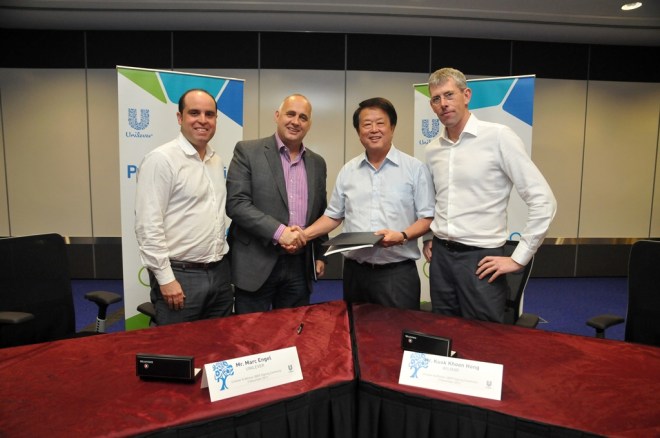
Glenn Hurowitz, Marc Engel, Kuok Khoon Hong, and Scott Poynton. Koh Lip Meng
Indeed, Maitar later told Poynton that he was up that night, refreshing the Wilmar website every 15 minutes. Just before midnight, the announcement appeared.
At that point, Poynton said, he was in a state of “utter knackeredness, matched by exhilaration.” We’ve got it! We’ve got it! he remembers thinking.
![]()
Of course, that, too, was a false ending. Sure, one year later, every major palm oil trader had made pledges like Wilmar. But not all these companies are truly committed. Some seem to be backsliding already. Forests are still burning. Some brands, like Kraft, have refused to commit to deforestation-free palm oil. Others, like Burger King and McDonald’s, haven’t updated their policies to require anything more than Roundtable certification.
But the accepted norm has shifted, as has the momentum. And it is spreading to other products. Last September, a host of major companies made vague promises to end deforestation. Cargill stepped up with a clear commitment to eliminate deforestation from all its supply chains, across all commodities, all around the world. Then ADM committed to a no-deforestation commitment for soy and palm oil, with even more details about how it would make it work.
How did this momentum get started? There’s no doubt that the NGO campaigners, and the ordinary people who turned out to their rallies, deserve credit there. “People won’t change unless they are uncomfortable,” Poynton said. “NGOs are agents of discomfort.”
Hurowitz is the main representative of NGO pressure in this story, but in part that was because he happened to be in the right place at the right time: It was his face on television that had caught Kuok’s attention. NGOs had been telling the world about the palm-oil problem for seven years at that point. But we also know that Kuok had sent letters, like that first PDF he sent to Hurowitz, to other campaigners, and they hadn’t resulted in the same kind of engagement.
Since the Wilmar pledge, Hurowitz has shown an ability to achieve results, Poynton said, because he is not purely oppositional.
“Glenn’s a different kettle of fish,” Poynton said. “He can see the good in these people. He’s ready to sit down and engage with them as a human.”
Several activists told me they thought Wilmar changed thanks to the accumulated pressure. Perhaps. Or perhaps NGOs had been failing for years to make the kind of connection Hurowitz achieved with Kuok. Probably both are part true: Kuok needed the NGO pressure to start thinking about this, and he also needed the pragmatic partnership he found in Poynton and Hurowitz.
Goon acknowledges the necessity of NGOs to bring problems to light. “My personal opinion is that they are necessary,” he said. “Sometimes their methods leave a bit to be desired. Even now, we get certain campaigns against us because, perhaps, if we’re not controversial, they cease to exist. There are certain civil-society groups that come up with campaigns that are baseless and devoid of fact. But. I think the ones that were important in effecting this particular change were essential to this whole equation.”
This conflict between NGOs and corporations is often all that the media (including me) reports. It’s a simple story about winners and losers: The corporation stands implacable! Or, the corporation caves! But this formula for reporting is reductive and ultimately misleading.
Pushing for environmental responsibility is tricky business because it requires, first, dramatic confrontation, and then cooperation. Sometimes greens get stuck in the first mode, hung up on the primal desire to crush their enemies. But conflict alone spawns chaos: Smash the established palm-oil industry, and thousands of small farmers will turn to logging, or soy, or some new crop. And conflict alone is too slow.
So while conflict is always part of change — it’s what launches the story — it’s not the whole story. The story of change in the palm oil industry isn’t, ultimately, one of good triumphing over evil; it’s one about acceptance and reconciliation and compassion.
How does change happen? It happens when imperfect humans struggle, and grow, and change themselves. That, I think, was the key factor in breaking this particular stalemate. Hurowitz, Poynton, and Kuok recognized that they were facing not an enemy to be defeated, but human beings — those rough mixtures of good and bad, all striving for grace as best they can.
